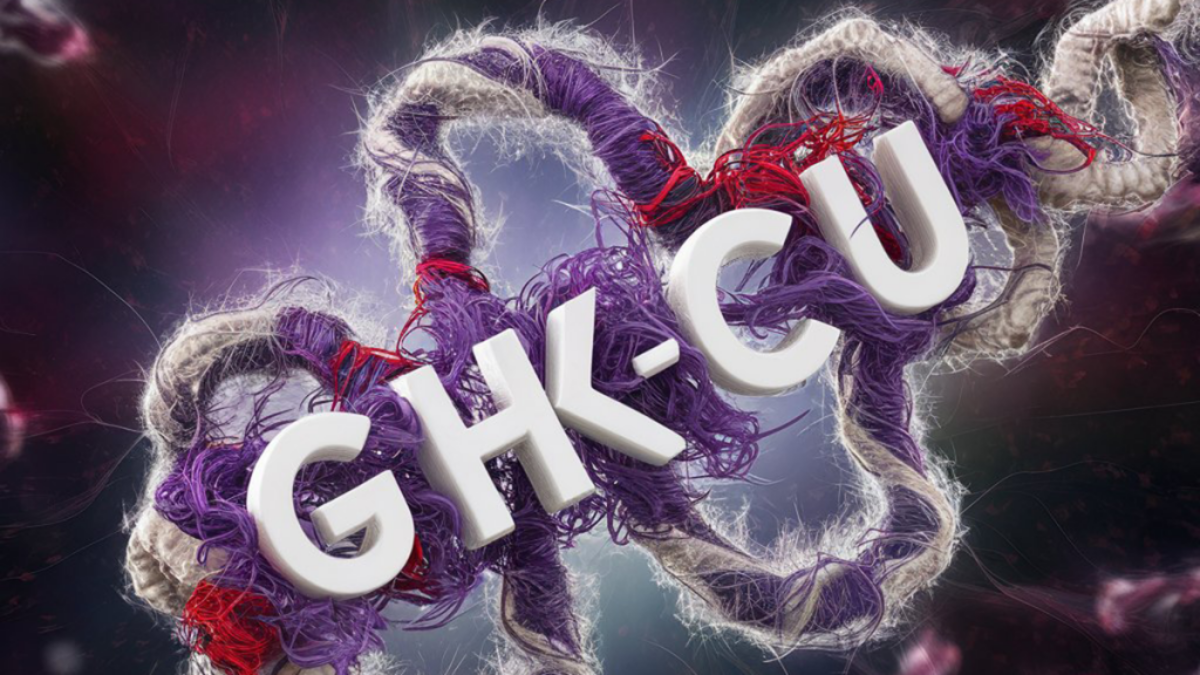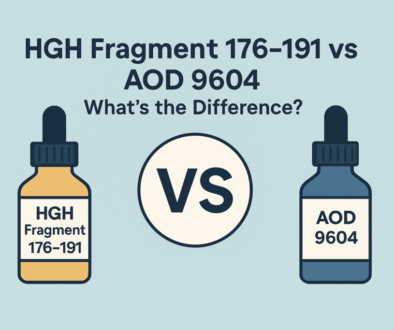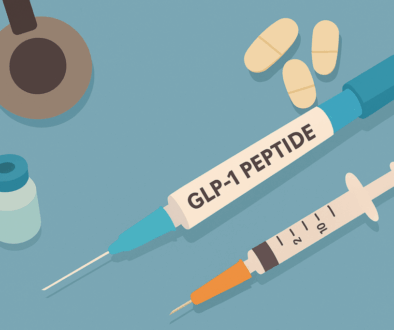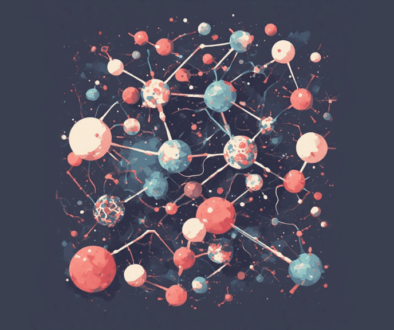What is GHK-Cu? Benefits, Uses, Safety & More

GHK-Cu is a naturally occurring peptide molecule found in the human body. Initially discovered for its role in wound healing, GHK-Cu has garnered attention for its potential benefits in skincare and overall health. This peptide is believed to stimulate collagen production, act as an antioxidant, and possess anti-inflammatory properties.
Interest in GHK-Cu is primarily focused on its aesthetic benefits, including reducing wrinkles, improving skin appearance, and promoting hair growth. But it also has other general health benefits.
Table of Contents
Join Our Newsletter — Get 15% Off
Get the latest offers, peptide research insights, and stock updates.
GHK-Cu is a naturally occurring peptide molecule found in the human body. Initially discovered for its role in wound healing, GHK-Cu has garnered attention for its potential benefits in skincare and overall health. This peptide is believed to stimulate collagen production, act as an antioxidant, and possess anti-inflammatory properties.
Interest in GHK-Cu is primarily focused on its aesthetic benefits, including reducing wrinkles, improving skin appearance, and promoting hair growth. But it also has other general health benefits.
What is GHK-Cu?
GHK-Cu is short for Gly-His-Lys-Copper, a naturally occurring tri-peptide. That means it’s composed of three amino acids linked together: glycine, histidine, and lysine, with a copper molecule attached. In our bodies, it’s found in both the copper and regular (just GHK) forms.
Like many other peptides, our body naturally produces GHK for various functions, such as stimulating collagen and elastin production, protecting against free radicals, and promoting wound healing. GHK is found in various bodily fluids, including plasma (blood), saliva, and urine.
GHK levels are highest around age 20 and decline by 60% by the time we reach 60 (1). That’s why using GHK-Cu therapy can be beneficial for aging adults. Interest in using GHK-Cu for skincare, anti-aging, and general health benefits is growing.
Benefits of GHK-Cu
According to published research, GHK-Cu has the following benefits: (1)
-
- Tightening loose skin and reversing thinning of aged skin
-
- Repairing protective skin barrier proteins
-
- Improving skin firmness, elasticity, and clarity
-
- Reducing fine lines, wrinkles, and improving the structure of aged skin
-
- Smoothing rough skin
-
- Reducing photodamage, mottled hyperpigmentation, skin spots, and lesions
-
- Improving overall skin appearance
-
- Stimulating wound healing
-
- Protecting skin cells from UV radiation
-
- Reducing inflammation and free radical damage
-
- Increasing hair growth and thickness, enlarging hair follicle size
Skin Health
GHK-Cu is most recognized for its ability to enhance skin health and appearance. One of its primary benefits is stimulating collagen production. Collagen is a protein that provides structural support to the skin, keeping it firm and supple.
As we age, collagen production naturally decreases, leading to wrinkles and sagging skin. GHK-Cu can help counteract this by stimulating the production of new collagen, resulting in smoother, firmer skin with improved elasticity.
Additionally, GHK-Cu can also boost elastin, another important protein, by reducing its breakdown (2). In the skin, elastin is primarily involved in making your skin more elastic and stretchy.
Antioxidant & Anti-Inflammatory Benefits
There’s also evidence that GHK can boost levels of the body’s natural antioxidant enzymes (3).
Meanwhile, its anti-inflammatory effects can be beneficial for various skin conditions, such as acne, eczema, and psoriasis. Inflammation is a natural immune system response to injury or infection, but chronic inflammation can damage the skin and lead to various skin problems.
GHK-Cu helps reduce inflammation by inhibiting the production of inflammatory molecules and promoting the production of anti-inflammatory molecules.
Since oxidative stress and inflammation play a role in both aging and chronic disease, this is yet another major benefit of GHK-Cu for both skin appearance and overall health.
Wound Healing
Another notable benefit of GHK-Cu is its ability to promote wound healing and regeneration. Animal studies have shown that GHK-Cu can accelerate the healing process (4).
It does this by stimulating the migration of skin cells to the wound site, promoting the formation of new blood vessels, and increasing the production of collagen and other proteins involved in tissue repair (1). GHK-Cu has also been shown to promote nerve growth.
These benefits explain why GHK-Cu is sometimes used after various cosmetic procedures, including plastic surgery, chemical peels, dermabrasion, and laser treatment.
Additionally, GHK-Cu has antibacterial properties, which can help prevent infection in wounds.
Hair Growth
GHK-Cu has also shown promising results in promoting hair growth. It does this by stimulating the proliferation of hair follicle cells and anti-inflammatory effects (5).
Additionally, GHK-Cu has been shown to increase the size of hair follicles, resulting in thicker, fuller hair. These effects make GHK a promising treatment for hair loss and other hair-related issues.
Key Study Findings
Here’s a quick summary of the most important studies of GHK-Cu: (1)
-
- In a study of 71 women with signs of aging, GHK-Cu facial cream applied for 12 weeks improved fine lines and other markers of skin appearance.
-
- Similarly, another study of GHK-Cu eye cream reported improved skin appearance in 41 women, with better results than placebo or vitamin K cream.
-
- A study of women found that GHK-Cu applied to thigh skin improved collagen production more effectively than vitamin C and retinoic acid, and also improved markers of skin health and appearance.
-
- In a study of 40 women aged 40 to 65, GHK-Cu facial serum applied for 8 weeks significantly reduced wrinkle volume by 55.8% and wrinkle depth by 32.8%, outperforming both a control serum and a commercial product.
-
- Early studies in mice have even reported that GHK injections have anti-pain and anti-anxiety effects.
Safety and Side Effects
GHK-Cu is considered safe for topical and oral use. It’s a naturally occurring peptide in the body and is well-tolerated by most people. Moreover, its non-copper form GHK has been studied for four decades, highlighting its safety (1).
However, some individuals may experience mild side effects, such as skin irritation or redness, especially with higher concentrations or frequent use. Additionally, people with copper allergies should avoid products containing GHK-Cu.
As such, it’s a good idea to do a patch test before using GHK-Cu topically.
How to Use GHK-Cu
Generally speaking, GHK-Cu can be taken in one of three ways:
-
- Applied topically in a cream, serum, or another product
-
- Taken orally in capsules
-
- Injected
The form you choose will depend on your specific needs and preferences.
Topical application is the most popular approach, targeting specific areas of concern such as wrinkles, scars, or the scalp. GHK-Cu is typically incorporated into creams, serums, and other topical products.
Injections done under the supervision of a qualified doctor are another option. Finally, oral supplements are less common but are believed to have both skin and overall health benefits.
Overall, GHK-Cu can be a beneficial addition to your skincare routine or health regimen, but it’s important to use it correctly and follow the recommended dosages for optimal results.
Future Research and Possibilities
GHK-Cu continues to be a subject of interest in scientific research, with ongoing studies exploring its potential applications and benefits.
One new and particularly interesting area of research is GHK-Cu’s potential anti-anxiety and pain-relieving properties.
Further studies are needed to explore these potential applications fully, but the future looks promising for GHK-Cu as a multifaceted peptide with diverse health benefits.
GHK-Cu: Promising Potential for Skincare and Health
GHK-Cu is an impressive molecule with a wide range of skin and overall health benefits. Research suggests that both GHK-Cu and regular GHK have antioxidant, anti-inflammatory, anti-pain, anti-anxiety, blood vessel growth, nerve outgrowth, anti-cancer effects.
GHK-Cu is most recognized for its skincare and anti-aging benefits but with further research it may also become an option for treating anxiety, pain, and other issues.
Its safety, low cost, and diverse applications make it a valuable ingredient in skincare products and supplements.



